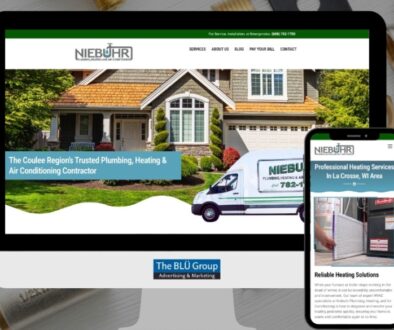6 Common SEO Mistakes On Small Business Websites
In the last decade plus that I have been working in the search engine optimization industry (SEO), I have been fortunate enough to come into contact with many small business owners looking to build a brand on the Web.
Since the small business owner’s first priority is to run their business and not to be an SEO “expert,” I wrote a popular primer for small business SEO to help small business owners get started with step-by-step basics that will lead them in the right direction.
While the primer covers a lot of “what to do right” with your SEO efforts, it’s always a good idea to look at some “what not to dos,” too. With that in mind, here are six common SEO mistakes many small businesses make—and that you should avoid.
1. Building a site on a free subdomain or social media site
As a website accumulates inbound links, it begins to rank better within the search engines. When you build your site on a free subdomain, you risk that if you ever choose to move your website (and there are numerous reasons that you may decide to do so), you will lose credit for all of the links aimed at your “free subdomain” website.
Why? Because most free subdomain providers don’t allow you to 301 redirect your old site on their service to your new one. A 301 redirect is the only way to “tell” a search engine your site has moved without having to start over again from square one with your search engine rankings. Same goes for using a social website, such as a Facebook page, as your only online presence.
2. Duplicate or non-descriptive title tags
The Title Tag attribute is largely agreed in the SEO community to be one of the most important “on page” aspects of SEO for each page of your website. Simply stated, the Title Tag attribute tells the search engine what your page is about. Many small business owners make the mistake of making their homepage Title Tag attribute merely contain something generic like “Home,” which does little to tell the search engines what your website is about—and therefore what words and phrases they should be ranking it for.
- Bad homepage Title Tag: “Welcome”
- Good homepage Title Tag: “Tampa FL Widget Store | ABC Widgets”
Additionally, many small business owners often use the same exact Title Tag attribute on every page of the site. Each page should have its own individual title describing the content on that specific page.
3. Building primarily flash-based websites
It used to be that search engines couldn’t index the content on Flash sites—period. Flash optimization has come a long way since then, but if you think regular SEO is tough, then Flash based SEO techniques will seem like rocket science. While having Flash based components isn’t a problem (such as a flash banner rotating images of your products), most small business owners would be better off avoiding heavy use of Flash, unless they also have the budget to bring in Flash SEO professionals to ensure the search engines can read it.
4. Using “splash” pages as homepages
We’ve all been to that website that has the very sexy graphic or Flash animation on its homepage that users need to click to enter the “real” website. Not only is this bad from a usability perspective (these pages confuse some people and they simply leave the website) but it’s also bad from an SEO perspective, for a couple of reasons.
- The splash homepage traditionally contains little or no written content. Given that the homepage is typically the strongest page of your website in terms of “ability to rank” in the search engines, you want to be sure there is content on the page that tells the search engines what your site is about.
- A splash entry page is a sure fire way to produce “split link popularity” issues. For example, when a visitor goes to yoursite.com, they see your splash page and then have to click in order to “enter,” which takes them to yoursite.com/secondhome.html. When people link to your website, some will link to yoursite.com while others will link directly to yoursite.com/secondhome.html to avoid the splash page and connect users with the “real” homepage immediately. So, if you have 100 links to your homepage, they could be split between the two pages. You’d be much better off having one homepage with all 100 links aimed at it, making it a “stronger” page that will ultimately rank better in the search engines.
Everything we’ve discussed above has been related to “on page” search engine optimization efforts. But not everything you can do for your site SEO-wise actually happens ON your website. SEO also involves “off page” factors. Below, we’ll discuss two that small business websites typically ignore.
5. Not optimizing local listing pages on popular local sites
Twenty percent of all Google searches are local in nature. And lately, Google Places is showing up at the top of the search results for more and more of those search queries. If you want to be found for locally based searches on Google, claiming and optimizing your Google Places listing is vital.
Additionally, Google pulls data from many other websites and it’s believed that they take that data (mainly reviews) into account when ranking your Places page within the Google Places results. This means that claiming and monitoring your listings (and getting good reviews) on sites like Yelp, CitySearchs and others is important to your SEO efforts.
6. Doing nothing on the “link building” front
Links are still widely believed to be the single most important “off page” SEO factor. Simply put, without links from other websites, your site won’t rank. The more competitive your niche? The more links you will need to get.
Unfortunately, many small business owners put their sites up and completely ignore the inbound link building process afterward. While link building can often be confusing to some small business owners, and it can definitely be time consuming, there is no doubt that if your goal is to improve your search engine rankings, you absolutely need inbound links.
Luckily, many folks in the SEO industry share their link building knowledge on a regular basis. Two guides to check out? 101 Link Building Ideas and The Professional Guide to Link Building.
Rae Hoffman-Dolan, co-owner and SVP of marketing for Speedy Incorporation.
Rae Hoffman-Dolan aka “Sugarrae” is a serial entrepreneur and well-known SEO consultant specializing in SEO audit services and link building strategies. She is also the Co-Owner and SVP of Marketing for Speedy Incorporation.



